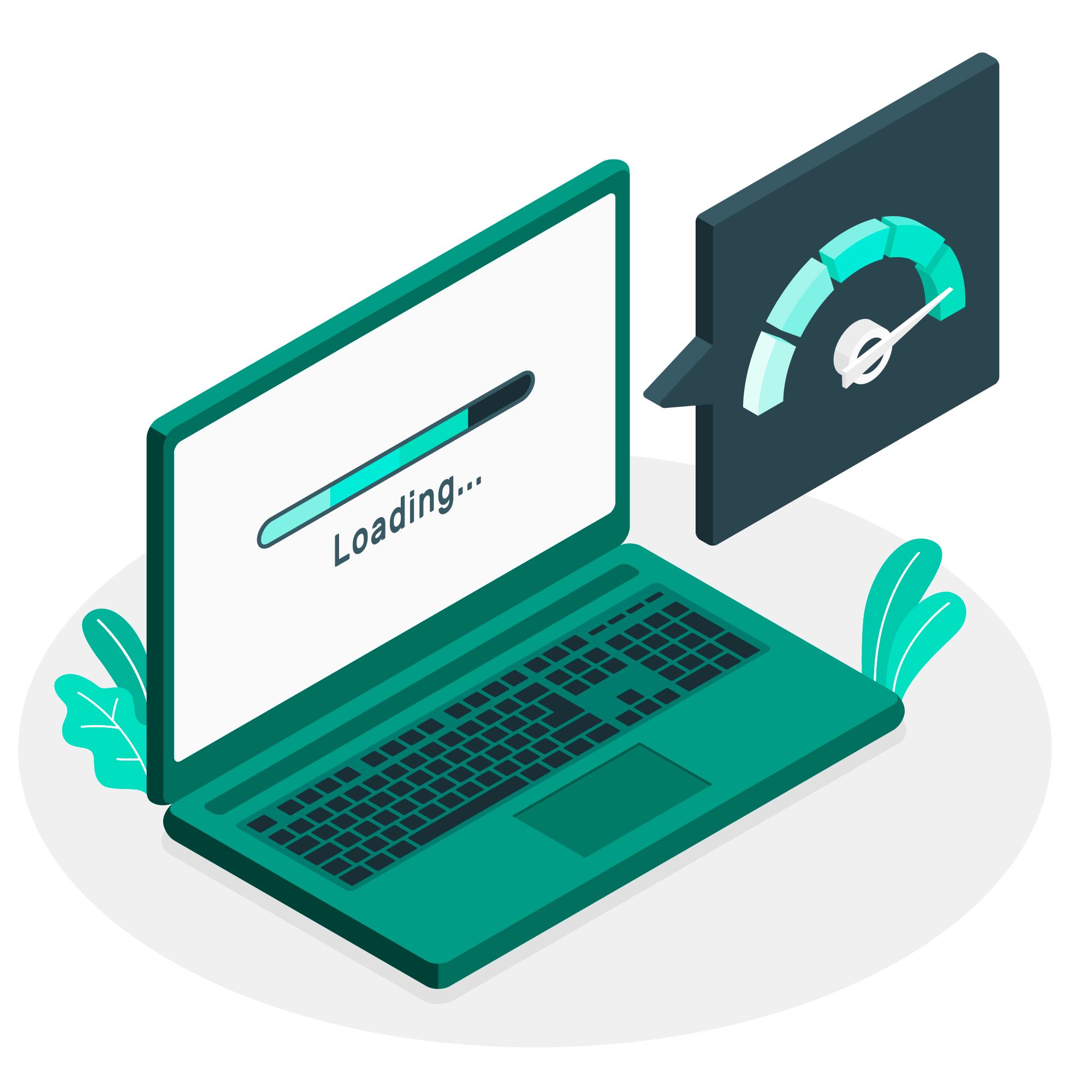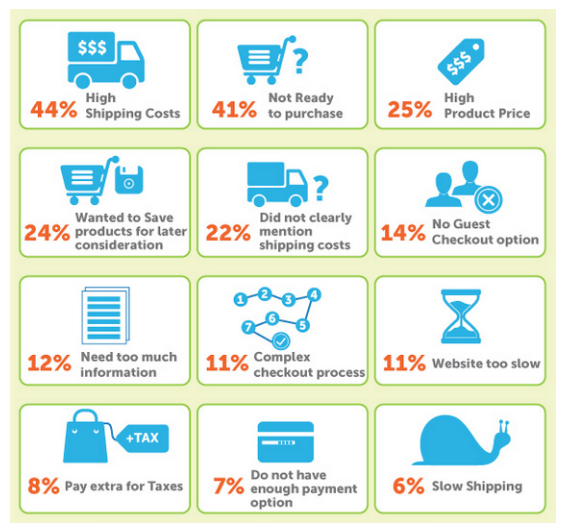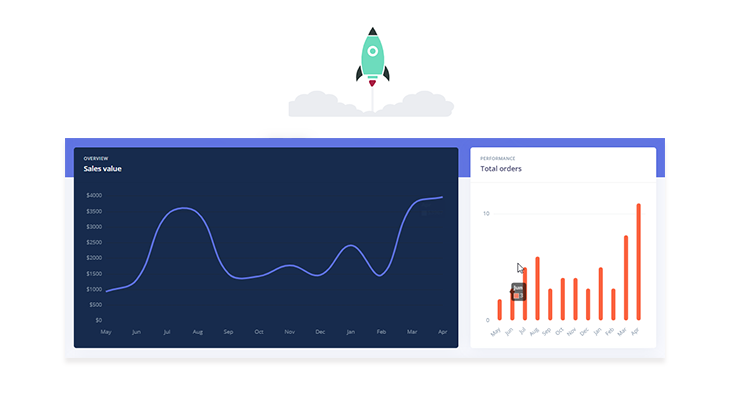Growth is an exciting phase for every eCommerce business. However, businesses should be smart enough to upgrade to eCommerce platforms equipped with fitting features and functionalities. This will empower them to achieve their upcoming business objectives.
An eCommerce platform that's rigid, expensive, and tough to maintain can leave an online store in a hot mess. When they launch a business online, most eCommerce owners choose a platform that offers a basic set of features and low starting costs. However, with time, the platform cannot meet growing business needs, thus impacting the overall website performance.
But migrating to a new platform is rarely plug-and-play! Instead, it comes with its own challenges.
For instance, a poorly executed product data migration can lead to duplication that causes errors in product recommendations, product mapping, and images. Similarly, if the customer data and order histories aren't transferred properly, customers will face login issues and be unable to access their profile information with ease.
The result - poor customer experience and loss of revenue!
So, though eCommerce migration is a must for businesses wanting to compete and survive, it shouldn't be done on the spur of the moment. One needs to seriously consider the risks and know when to make the switch.
If you are planning eCommerce re-platforming for your online store, this post will serve as a valuable guide.
1. Your Ecommerce Platform Lacks the Necessary Features
An ideal eCommerce platform should develop powerful features that empower you to sell anything, from physical products to digital downloads, with ease. It should offer countless themes and unrestricted customization options to help your store stand out from the crowd.
Moreover, modern shoppers expect online stores to offer guest checkouts, one-click refunds, an efficient checkout process, inventory, and WooCommerce order management.
If your existing eCommerce platform isn't equipped with the functionalities that bring value to your business, it's time to consider a migration. Most developers recommend WooCommerce, Shopify, and BigCommerce, the top platforms known to boost a store's user experience.
For instance, if you hire a dedicated WordPress developer, they will encourage you to go for WooCommerce, an open-source WordPress plugin that's developer-friendly. WooCommerce is scalable and can make your online store trendy and unique. In addition, the plugin can handle multiple product lines without making your website slow.
2. Your Website Has Gone Slow

Cart abandonment is a burning issue in the eCommerce world. Each year eCommerce businesses lose $18 billion because of cart abandonment. A slow website is among the top reasons why shoppers abandon their purchases.

Slow loading time can negatively impact your eCommerce business's reputation, online ranking, and bottom line. Find out how long it takes for your home page to load. Slow website speed is often attributed to too much flash content, JavaScript issues, or outdated third-party apps. On many occasions, the eCommerce website hosting you also choose impacts website speed.
If it takes longer than 3 seconds to load, it's time to consider an eCommerce migration to improve your site's speed.
3. Your Development Team Is Spending Too Much Time Fixing Bugs
New research from Rollbar reveals that more than a third of developers spend a quarter of their time fixing bugs and other software issues. This is a leading pain point among developers.
Suppose your team of developers is spending too much time fixing bugs and making updates and patches. In that case, it indicates that your existing eCommerce platform isn't able to manage the increasing load. Simply fixing bugs will not solve the issue. You need to switch to an eCommerce solution that will help you scale without any hiccups.
4. Your Existing Platform Doesn't Handle Integration Well
Front-end performance is a nice-to-have feature, but your platform's behind-the-scenes operations can make or break your online business. All e-commerce enterprises need a platform that easily integrates their stores with a host of other critical systems. This can significantly reduce costs and improve productivity.
A growing eCommerce business demands more advanced functions than what's offered by a platform with basic features. In such cases, integration with a third-party extension can help in expanding a store's functionality.
However, not all platforms allow a smooth integration. For instance, Magento offers more than 3000 options (apps and add-ons) for integration. On the other hand, Squarespace offers just 20 add-ons.
If your eCommerce platform isn't allowing a smooth data integration, it's time to consider re-platforming to boost your online business performance.
5. You Need a Platform with UnRestricted Capacity and Capabilities
An ideal platform should offer out-of-the-box CMS and OMS (order management system) capabilities to help < href="https://www.creative-tim.com/product/astro-ecommerce" target="_blank">eCommerce businesses manage multiple online stores, fulfillment centers, channels, and relationships with ease. In addition, the platform should also be able to expand along with the growing needs of high-growth businesses.
Unfortunately, some eCommerce platforms have restricted capacity. If your existing platform isn't offering or charging for features like unlimited products, product configurators, orders, or variants, it's not the right platform for you.
6. Your Social Media or Help Desk Is Flooded with Complaints
One sure-shot sign you need to consider re-platforming is when functionality queries or complaints dominate your social page, help desk, or emails. Besides hurting your team, software frustrations impact customers.
A recent Salesforce study reveals that customer expectations are growing each year. For example, 80% of the customers surveyed shared that a business's experience is as important as its products or services. Also, 66% expect firms to understand their needs and expectations.
When eCommerce platform issues negatively impact customer experiences, it's time to switch to a new platform that's scalable and allows you to do more with less.
Summing Up
I would describe eCommerce re-platforming as a necessary evil that accompanies the growth phase of every enterprise. Every online store needs a reliable, secure, and scalable platform that supports business growth and usability. That's the foundation for high-growth eCommerce startups.
Migration involves several risks; however, it can support your growing business needs as it evolves and expands. Additionally, it reduces unnecessary maintenance costs and boosts the site's performance.
Use the information shared above to determine when it's time to re-platform your online store. This will help you scale your venture, provide an awesome customer experience, and ensure a reliable and robust technology backend.
Author Bio:
Anil is the CEO & Co-Founder of Multidots, one of the world's top WordPress development agencies. He is a technopreneur with over 13 years of experience coding, thinking, and leading the business with mind and people with heart. He and his team are seasoned in delivering secure and feature-reach WordPress services for businesses big and small.




